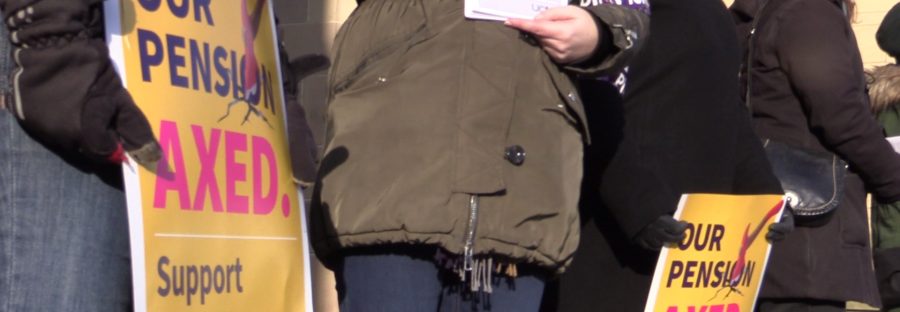University lecturers strike over pensions continues despite ongoing talks
- Staff at 61 universities will continue to strike despite talks with UUK resuming on Tuesday
- UCU representatives urge government to get involved in negotiation process
- Universities minister Sam Gyimah has downplayed the government's role in the issue
The government is refusing to step and help resolve a strike over pension cuts at 61 universities, including the University of Manchester.
The University and College Union (UCU) has been at odds with Universities UK (UUK) regarding proposed changes to their pension scheme.
After a lengthy stalemate, the two sides have agreed to resume discussions on Tuesday through Acas but lecturers will continue to strike as planned.

Universities minister Sam Gyimah maintains that the government should hold a neutral stance on the issue, despite questions from representatives from the UCU urging the government to step in.
He said: “This is an employer and employee dispute. The best involvement is to get them to negotiate.
“The dispute is with USS (Universities Superannuation Scheme), it’s not for the government to take a side. We do want the dispute to be resolved because of the impact on students but also because we want lecturers to know that they are in jobs where they are valued.”
Branch secretary of UCU at Man Met, Julie Wilkinson, was with her colleagues on the picket line despite MMU staff not being on strike.
She said: “The government needs to intervene. I’m from Manchester Metropolitan University, we’re not on strike. Why are we not on strike? Because we have a decent pension scheme called the teachers’ pension scheme.
“We’re not with the 61 universities who are at the moment in this confrontation where they cannot get Universities UK to negotiate reasonably. But why not? We have a decent pension scheme here at MMU.”
She added: “Why doesn’t the government intervene to make the same conditions available to our colleagues down the road at Manchester University and Salford University? It makes no sense at all.”
Wendy Olsen, professor of socio-economics at the University of Manchester, was equally critical of the government’s neutrality on the issue.
She said: “I too have cancelled a class and my students are probably fuming. But the responsibility lies in the negotiation process, so why isn’t the government even sitting at the negotiating table with the union, we can’t understand that.
“They have money to spend at USS and they’ve wasted it. £82,000 raise for the head of the USS pension scheme at a time where they say they are at a crisis.”
The UCU claim the proposed scheme could cost staff £10,000 annually but the UUK say the current scheme has a deficit of over £6 billion that could lead to widespread redundancies.
The plan agreed in January would see the USS change from a defined benefit scheme, where members are guaranteed income in retirement, to a defined contribution scheme, where pensions are dependent on changes in the stock market.
The union said its plan would provide a guaranteed defined benefit pension at some extra cost. Their proposals include universities accepting some increased risk as well as increased contributions of 2.7% for employers and 1.4% for scheme members.
A recent YouGov poll revealed that more than 60% of students supported the strikes, and only 2% of students blamed the lecturers.


One politics student at MMU disagreed with the action. He said: “I’m not in favour of the strike by UCU. I’m very happy to say MMU is not partaking in that strike, we have a good pension scheme.
“I’m not very supportive of people on pretty decent incomes going on strike so I do find it a bit on annoying on my fellow students’ behalf, and I do think tuition fees should be reimbursed. But in the end of the day I think that lecturers have every right to strike.”
Strikes continue next week from Monday to Thursday, and the following week between Monday and Friday.


